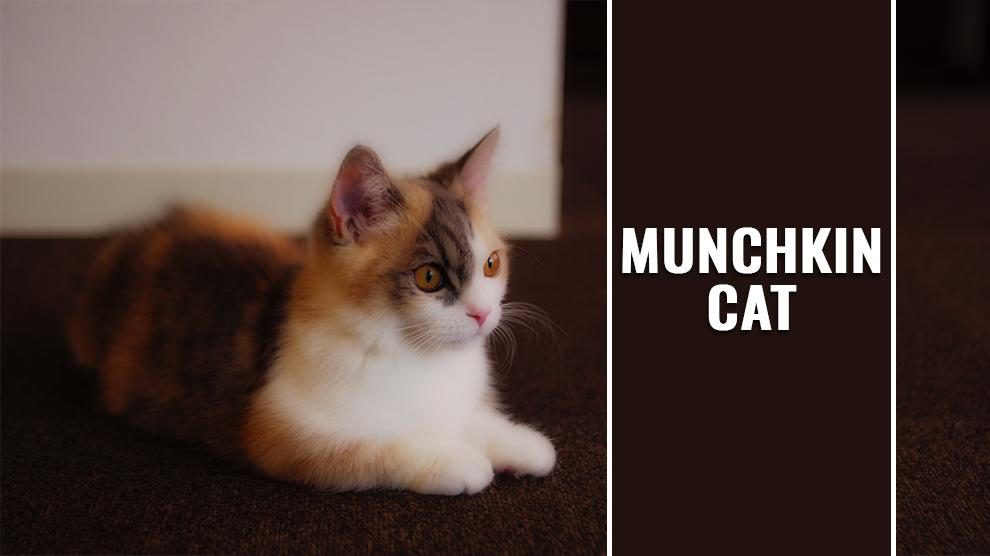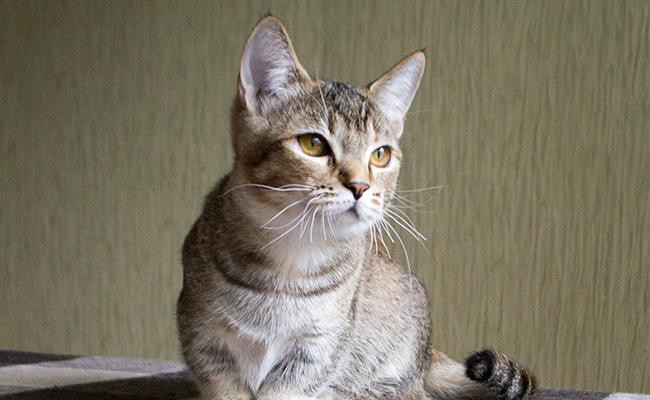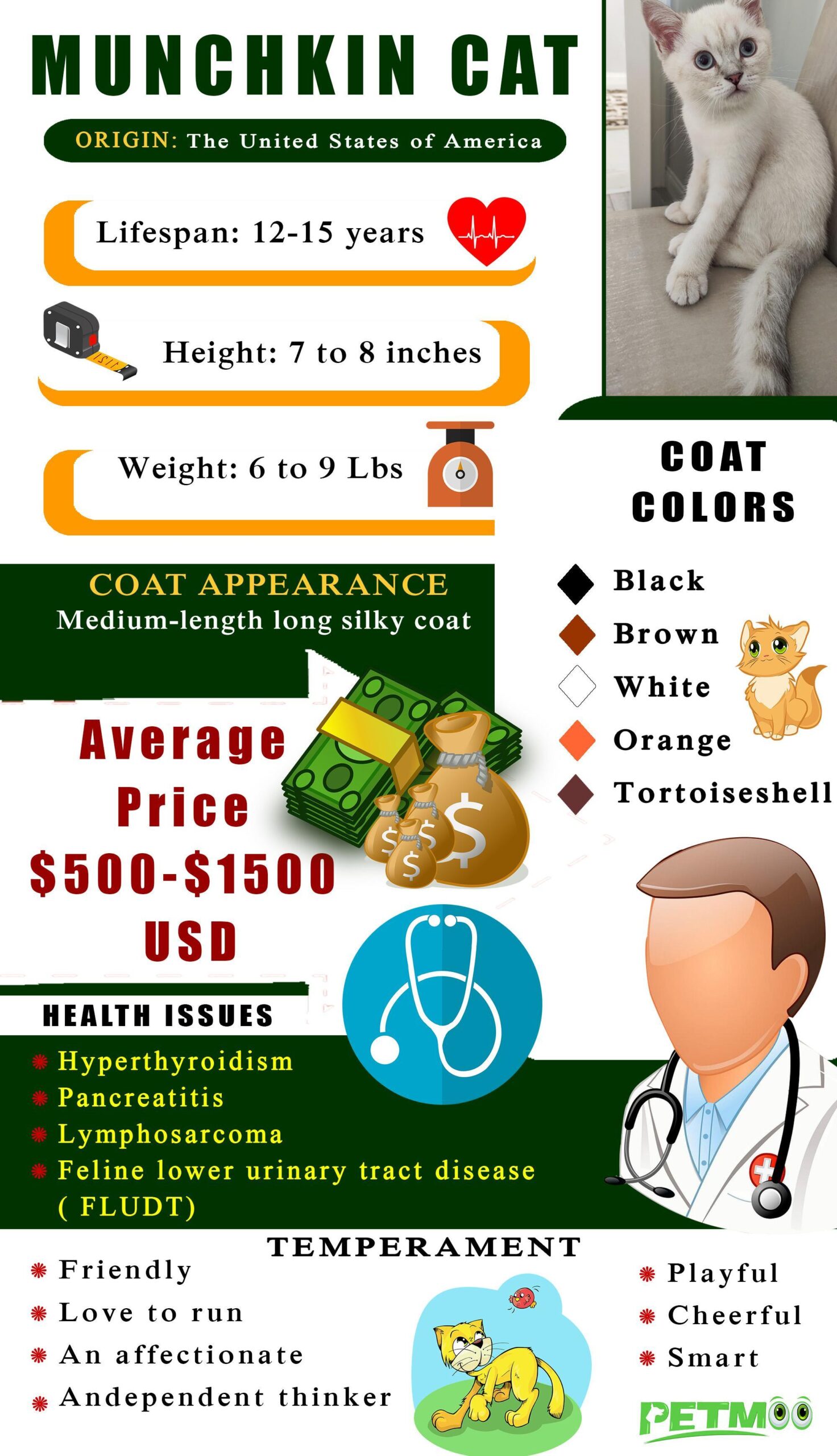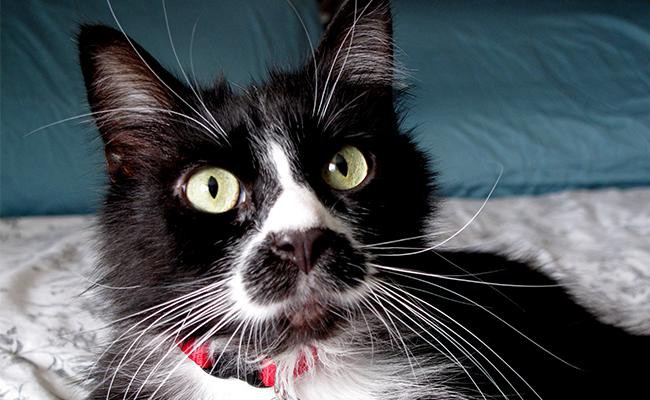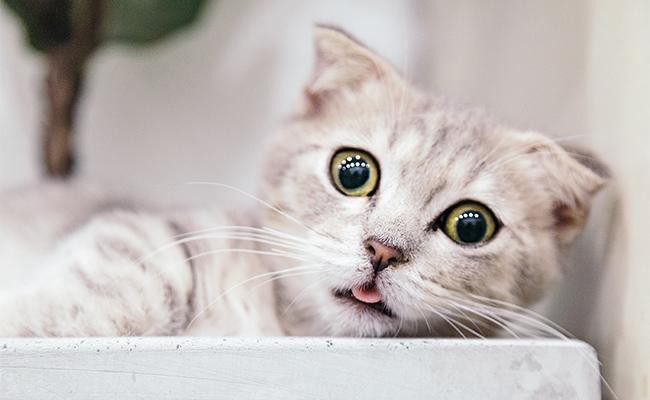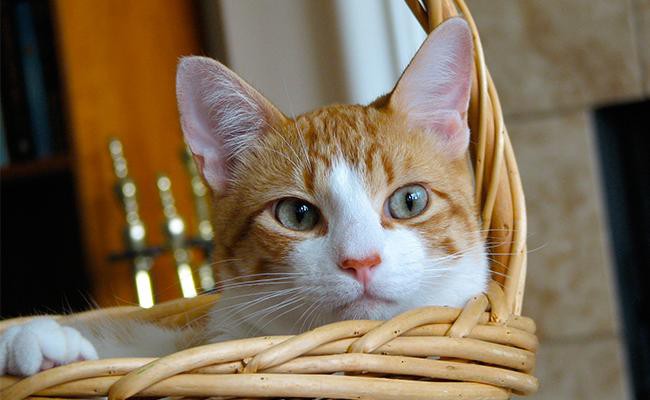Cat Pregnancy Calculator And Timeline
No matter what you perceive, the Munchkin is definitely not a hybrid between a cat and a cute Dachshund.
The exquisite dwarfed appearance of this low-riding cat is a product of natural mutation.
Playful and energetic, these cats might be short on height, yet they are long on fun.
This is a fast moving cat, and after seeing this, you immediately drop all preconception that is a laid-back or slow cat.
Munchkin Cat Breed Characteristics Sheet
- Origin: The United States of America
- Size: Small-medium
- Lifespan: 12-15 years
- Height: 7 to 8 inches
- Weight: 6 to 9 lbs
- Coat Appearance: Medium-length long silky coat
- Coat Colors: Black, tortoiseshell, brown, white, or orange
- Temperament: Playful, cheerful, sociable, friendly, love to run, an affectionate, independent thinker, smart
- Good With Children: Yes
- Intelligence Level: High
- Good With Pets: High
- Hypoallergenic: No
- Grooming: Moderate
- Shedding: Low-moderate
- Suitable For Apartments: High
- Need For Exercise: Moderate
- Easy To Train: Yes
- Good For First Time Owners: High
- Health Issues: Hyperthyroidism, Pancreatitis, Feline lower urinary tract disease ( FLUDT), Lymphosarcoma
- Litter Size: NA
- Average Price: $250-$2000 USD
Munchkin Cat History
This is an excellent cat breed. This lovely cat breed sprang up from a rare genetic mutation. Reports of these short-legged cats have been seen throughout history.
These cats are not a result of quality human selective breeding.
The same gene responsible for this breed’s short legs is the one that causes the diminutive stature of Welsh corgis and dachshunds.
This cat’s spine is different from that of a canine. These cats do not have spinal problems associated with those dog breeds.
In the 40s, a U.K. veterinarian talked about several generations of these cats. This cat line disappeared well during the Second World War. A short-legged feline was roaming in Stalingrad in the year 1953.
Interestingly, it was not before 1983 when a cat named Blackberry, was found by one Sandra Hochenedel in America. This breed came into existence.
This cat’s first litters have more than half long-legged and half short-legged kittens.
One of this cat’s litters named Toulouse was taken by LaFrance, Sandra’s friend. It is from Toulouse and Blackberry that our present Munchkin breed descended.
The Munchkin cat received TICA Championship status only in the year 2003.
Munchkin Appearance And Coat
These cats come in different colors, and they are either short-haired or long-haired. All Munchkins consists of walnut-shaped eyes, a tremendous look, and short legs.
These cats maintain a cute kitten-like appearance right throughout their lives.
Body
An adult cat weighs around 9 lbs (maximum). This is a small or medium-sized cat. They have a muscular and stocky body.
Legs
The cat’s short legs remain its main identifying characteristic. They are racers of the cat world.
They are excellent pouncers and sprinters. Although these cats will find it hard to jump as high, they are good climbers.
Backs
These cats are free from any spinal disorder. They are quite similar to a Dachshund or a Corgi.
Coat
They may have a medium-length plush coat. Some cats have longhaired with a long silky coat.
Coat Color
These cats can have any color pattern or combination.
Munchkin Cat Size And Lifespan
Size
- Height – 7 to 8 inches (legs are 3 inches shorter)
- Weight – 6 to 9 lbs
Munchkin Cat Lifespan
The average lifespan of a munchkin cat is between 12 and 15 years. Some cats are known to live a few more years if proper care and genetic health issues were addressed at the earliest.
Munchkin Cat Personality
Unique Traits of the Munchkin Cat
- Amount of Shedding – Moderate
- The tendency to make noise – Moderate
- Smartness – High
- Energy level – High
- Playfulness – High
- Pet-Friendly – High
- Kid-Friendly – Moderate
- Friendliness – High
- Affection level – High
Temperament
- Munchkin is a small-sized feline with a great personality. They are highly sociable and will wander anywhere.
- Being an active cat, they love to play and run a lot, mostly with toys. They are very good at the company, including other pets and children.
- It’s believed that they are quick to learn word commands. They cannot leap on cupboards or counters.
- A self-assured and the confident cat likes shiny things. These cats are natural hoarders.
- Built for speed and action. They are outgoing by nature.
- They love to investigate the new, it could range from people to other animals or pets.
- These cats adore being handled. They have a friendly demeanor around children.
- These cats love to explore new things and puzzle orientated. Munchkins need entertainment or activity to keep them going.
- They are friendly, approachable, peaceful, and are not aggressive. They are loyal.
- As long as you don’t smell like a mouse, they are not aggressive.
- These cats will like sitting on their hind legs, something a meerkat does often.
- The IQ of this cat is very high and this is the reason why they are easy to train.
Munchkin Cat Care
These cats are highly social and friendly. They do not need special care, but regular brushing can keep them free of locks and tangles.
1. Provide bedding
Cats will need comfortable beds. Make sure you provide comfortable places.
You can set up a bed at your cat’s favorite place. If there is an old object such as a shoebox, set it up for your cat.
2. Keep your cat indoors
In general, indoor cats live longer. Their short diminutive nature can make them an easy target. Munchkins are good as indoor cats.
You can buy a harness and keep your cat safely.
3. Litter box
Avoid using cleaners with ammonia and deodorants and lemon-scented cleaners. These scents definitely bother cats.
Never forget to scoop your cat’s litter box every day. You should wash your cat’s litter box once a week.
Once the box is dry, add a new layer of litter.
4. A regular vet visit on the cards
Like all felines, these cats do need a regular vet checkup. Take your cat at least once a year. Bear in mind, kittens need a regular medical checkup.
In most cases, these cats are healthy and strong. They do suffer from a slight genetic predisposition to problems of the chest and spine.
Your vet would be in a position to address these health issues.
5. Provide access to cat-friendly toys
These cats love toys that are friendly and chewable. They prefer things they love to chase. Make a visit to your pet shop.
- Look for reflective, brightly colored toys. Your cat will be easily attracted to these.
- Small toys your cat can feel safe around.
- Moving or remote-controlled toys can be wonderful for a cat.
6. Let Your Cat Snuggle
These cats are excellent social breed. Make sure you better take some time out and spend quality time.
Let them play on your lap while you are busy reading a magazine.
7. Understand Your Cat’s Body Language
Like any pet, you should understand and confirm whether your cat is comfortable or not.
Spend more time analyzing your cat’s body language. Stop all those actions that disturb your cat.
This could make your cat comfortable around you.
My cat is happy
A cat with a back arched, an erect tail, and forward ears show your feline is cheerful and normal.
My cat is sad
Your cat is actually stressed out if you find tail that’s moving back and forth, hair that stands erect, dilated pupils, and backward ears.
Leave your cat alone.
8. Teach young children how to handle your cat
They are brilliant family companions. Teach your children how to effectively handle a feline. You wish your cat to have only positive or good experiences with young children.
Ensure your children know how to handle a munchkin cat.
Your children should be taught taunting and over-handling animals. Show them the best way to pet the cat.
Munchkin Grooming And Shedding
This is not a solid maintenance cat. These cats may need grooming to end dead fur from the coat. These felines are more social and that most cats enjoy being combed or brushed.
This reduces shedding and bathing is not a regular occurrence.
1. Learn to brush your cat
These cats need regular brushing. The type of your cat’s fur will decide the maintenance need.
A longhaired cat needs brushing twice a week. A shorthaired cat needs once a week brushing
2. Give treats or rewards
Let brushing be a positive experience. Check your cat’s body language and then decide when to brush your cat.
Always give treats and rewards after it behaves well. A long-haired feline, comb the abdomen and legs against the direction of the hair. Make a partition down your cat’s back.
If your cat is a shorthaired one, you should brush your pet regularly. Work patiently along the line of coat. Brush the body, including areas like the abdomen and chest.
3. Trim the nails
Like all cats, these cats need trimming. When a feline’s nails start to grow long, where it gets stuck, trim its nails.
Pick your feline and slowly take its paws. Press down the pad and extend the nails.
Never remove the nail completely. Clip the tip. Make sure you trim only the white part. Be careful with the pink part, and will bleed instantly if you trim it even accidentally.
4. Brush your cat’s teeth
Ask your vet to suggest the right toothpaste.
Make sure your cat is comfortable with your brushing. Apply some toothpaste on your feline’s lips so that it gets used.
You use a cat-sized small toothbrush to clean your cat’s teeth. Regular brushing can remove other bacteria and tartar.
Munchkin Cat Health Problems
Munchkins are healthy smart breed. These cats are particularly susceptible to diseases and conditions. This is a young, cute breed.
As with Corgis and Dachshunds, these cats should not be fed more than they need to avoid obesity.
Contrary to common belief, these cats do not suffer mostly from spinal issues. Test conducted in 1995 showed no issues or abnormalities in the cat’s bones or joints.
The most significant drawback of this breed is their inability to jump as far as possible a normal cat would do.
Common Health Problems
Some of the common health problems associated with this cat include –
1. Lymphosarcoma
This is a type of condition that affects lymphocytes. These cells play a crucial role in maintaining the immune system on high alert.
There are two different types of lymphocytes –
- T cells
- B cells
This accounts for around 33 percent of cancers in felines. Lymphosarcoma causes hypercalcemia in felines.
The incidence is linked to feline leukemia virus.
Different forms of lymphoma in cats
Renal form (kidney)
- Increased thirst and urination
- Weakness
- Vomiting
- Anorexia
Solitary from
It depends upon the location
Multicentric form
- Depression
- Weight loss
- Loss of appetite
- Swollen lymph node
Alimentary form
- Fresh blood in feces
- Tarry or black stool
- Diarrhea
- Constipation
- Vomiting
- Lethargy
- Anorexia
Mediastinal form
- Weight loss
- Anorexia
- Cough
- Open mouth breathing
2. Feline lower urinary tract disease ( FLUDT)
If your feline is actually suffering from FLUTD, it means he will find it hard to urinate. He may eat less and show signs of irritable behavior.
He could be licking at his vulvar or penile area. Try these tips to keep your cat from FLUTD-
- Avoid stress – Stress or extreme anxiety is a cause for FLUTD. Cats can be irritated by stress. Changes in family members attitude, interactions with other animals, and routine are some of the few reasons for stress in cats.
- Give top quality diet – Wet diets have increased moisture content. If your vet has diagnosed FLUTD, then he may suggest a specially prepared diet.
- Feed them plenty of water – Feed a wet diet. Consider installing a water fountain or leaving a faucet open. Some felines love running water.
3. Pancreatitis In Munchkin Cats
Pancreatitis refers to a gastrointestinal disorder in cats. Many cases go unnoticed due to various reasons specific and sensitive diagnostic tests, vague clinical and nonspecific signs.
Cats may suffer from diarrhea, dehydration, weight loss, lethargy, and poor appetite.
4. Hyperthyroidism In Felines
Hyperthyroidism is a not so rare disease in felines. This disorder affects older, middle-aged cats.
Also called thyrotoxicosis, enlargement of the glands is caused by a non-invasive tumor called adenoma.
Possible contributing factors include excesses of certain chemicals in the food. Thyroid hormones affect and damage all the organs and hence it should not be taken lightly.
Munchkin Training And Exercise
Mother nature gave felines an alert mind, along with attractiveness. These cats are judicious and smart wise animals.
From the early days, these cats can be taught different things. Experts suggest increasing a cat’s alertness with the use of games and puzzles that need concentration.
These cats love watching objects and people around. These animals have a good sense of mind when it comes to protecting their life.
By nature, they are friendly and peaceful animals. These bassets and cats have a similar appearance, and also their trust.
These cats are active and playful. They are known to get along better with dogs and not cats.
Make sure that your little beauty gets as much exercise as possible. They can play catch. These cats need daily walks for an active and healthy life.
Munchkin Cat Names
Finding the right name for your cat is not a simple thing. Sometimes the name finds you when you least expect it and sometimes you need some inspiration.
The best method for choosing a creative and cute kitten name is understanding your kitty. Take a feel-good look at your cat, and think about the name that might suit him.
This cat is described as smart, outgoing, people-oriented, and playful.
Female Cat Names
- Beyonce – Beyond Others
- Betty – God-person
- Basil – Brave
- Rainbow
- Phoebe – Bright person
- Akansha – Desire
- Bella – Beautiful
- Gracie – Grace
- Hayley – Ingenious
- Ruby – Jewelry
Male Cat Names
- Loki – To Break
- Leo – Lion
- Jersey – From a section
- Jessica – God’s grace
- Jazzy – Short version of “Jazz”
- Josie – She shall add
- Kiri – Tree bark
- Meggie – Pearl
- Milo – Merciful
- Pumpkin – A fat fruit with an orange skin
Fun Facts About Munchkin Cats
- These cats are called sausage cat or midget cat.
- The distinct appearance of this cat is because of a mutation called achondroplasia
- Celebrity actor, hotelier Paris Hilton owns two munchkin cats
- The world’s shortest Munchkin cat is owned by Christel Young of California. “Lilliput” measures 5.25 inches from the ground to the shoulder level.
- These cats are called “cat magpies.” They love to stow shiny things.
- They perch like prairie dogs.
- This cat is named after the 1939 movie “The Wizard of OZ.”
- Russian version of this cat is called “Stalingrad Kangaroo Cat.”
- They were introduced to the general public through a cat show way back in 1991.
Munchkin Food
- Feed your cat healthy foods
- These cats need healthy food. They do not need anything special. You can give them the veterinary recommended, nutritious brand of food.
- You should not feed the dog or human foods to your cat. These include tuna, chicken, or taurine. All commercial cat foods contain taurine.
- Kittens need rich food to promote health and growth. If your pet is a kitten, then try kitten chew.
- Give them treats but not more than 10% of your feline’s diet.
- Place the food within your cat’s reach.
- Provide them with clean drinking water 24/7
- Provide comfortable bedding. Ensure that your house full of comfortable, warm places for your pet to curl up.
Favorable foods
- Meat
- Whole grains
- Eggs
- Fish
- Cheese
- Veggies
Foods toxic to cats
Stay away from these foods.
- Xylitol, a chemical-based sweetener
- Alcohol
- Bread dough
- Macadamia nuts
- Garlic
- Onion
- Grapes
- Raisins
- Icecream
- Chocolate
- Seasoned foods
Munchkin Cat Price And Breeders
The average price of a Munchkin cat ranges from $250 – $500 USD. Senior cats are much cheaper.
The price of a munchkin cat depends on several factors including freebies, the location, and the breeder’s reputation.
Female cats are much more expensive than a male cat because of their reproductive ability.
The breeder’s location controls the price depending on town and cities. Each city has a different rate.
Insurance, checkup, and vaccines also play a crucial in determining the price of a cat. It is believed that more the freebies, more the rate.
The color of the breed also determines the price of this cat. Reputed breeders sell a cat between $1000 and $2000 USD.
TICA Registered Breeders
Name – Alea Deneau
State – Washington
City – Tacoma
Country – The United States of America
Website – lapermkitties.com

